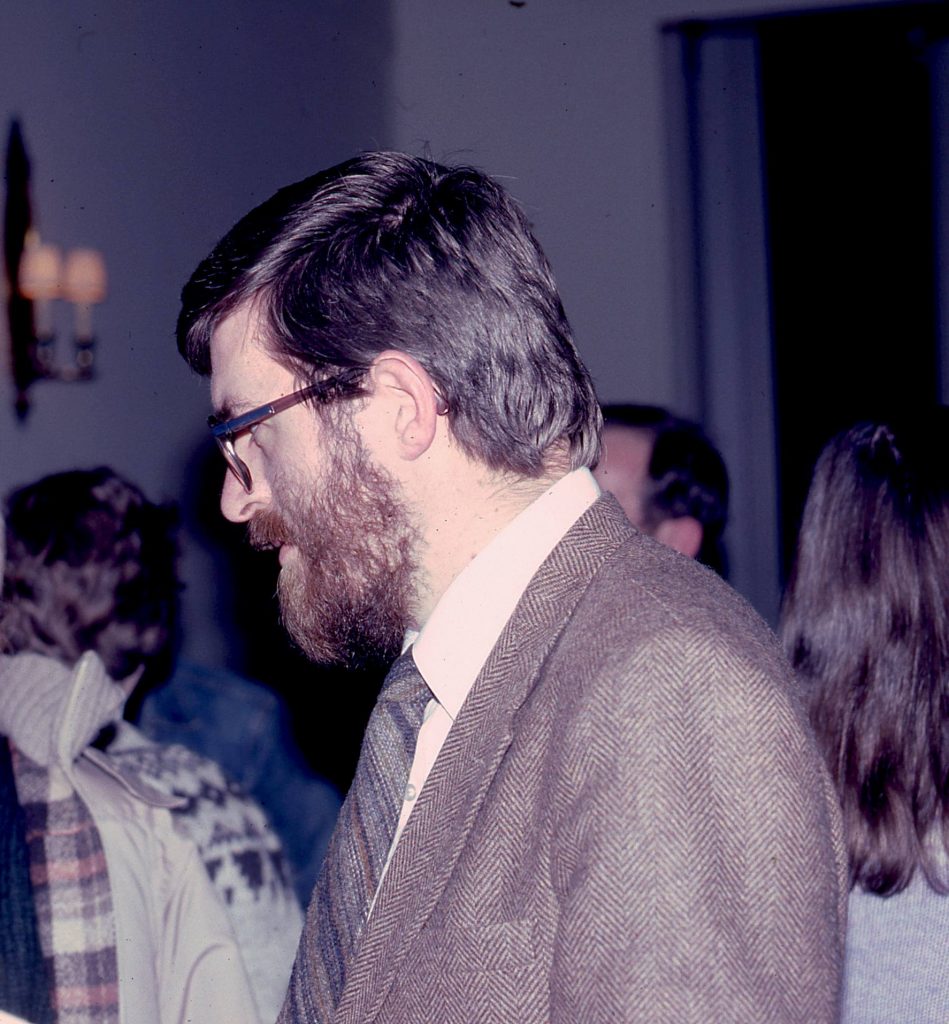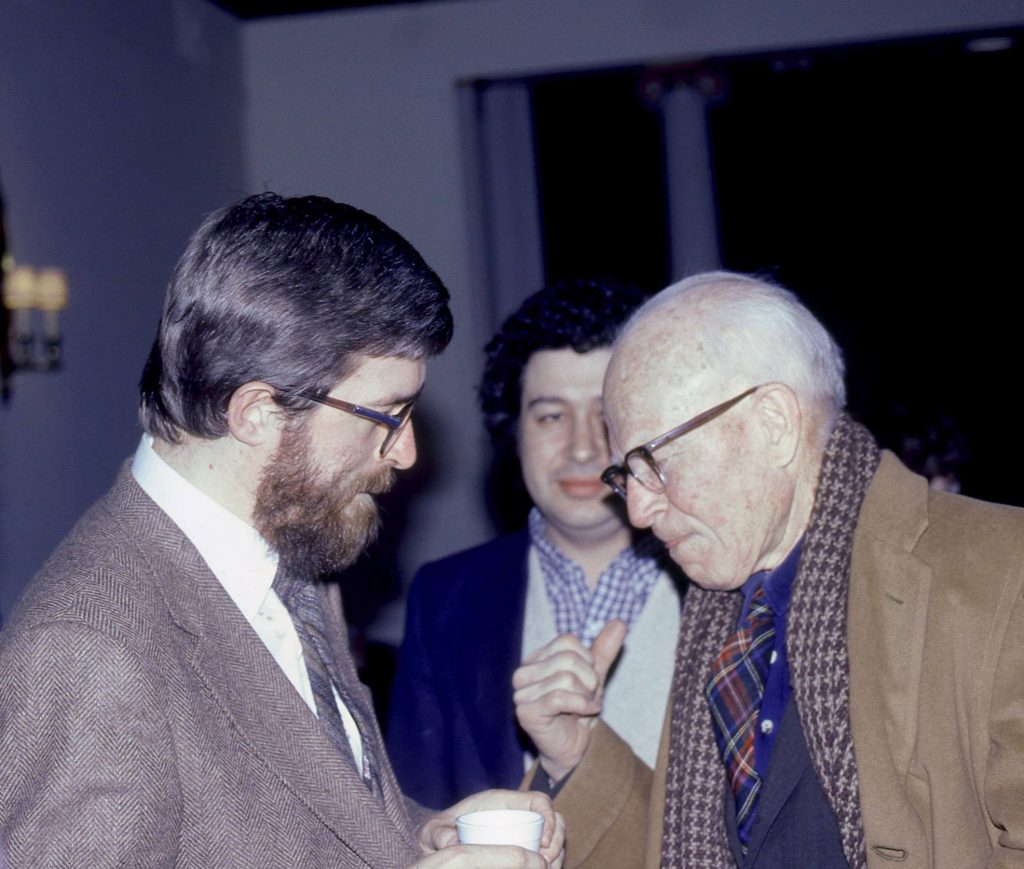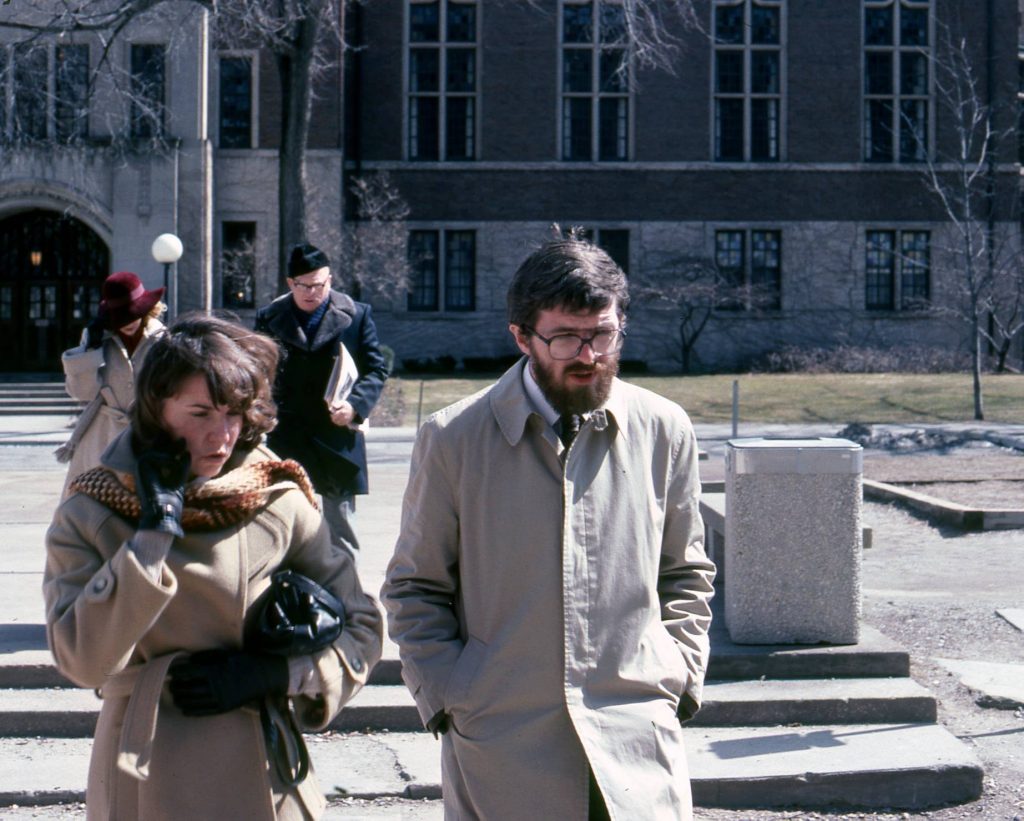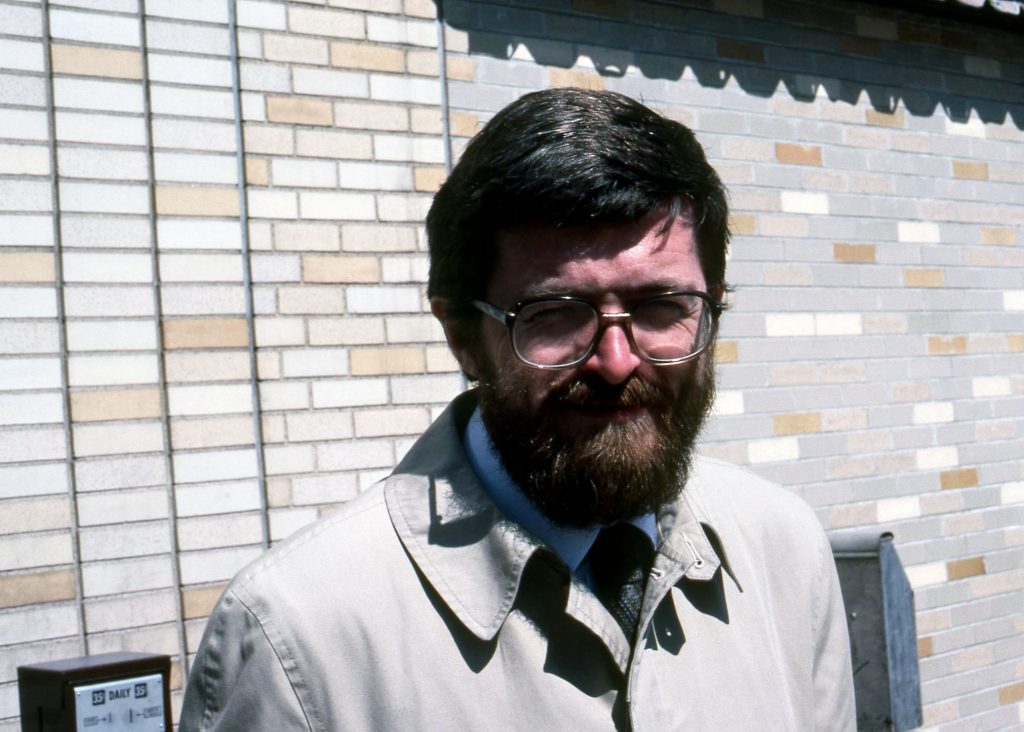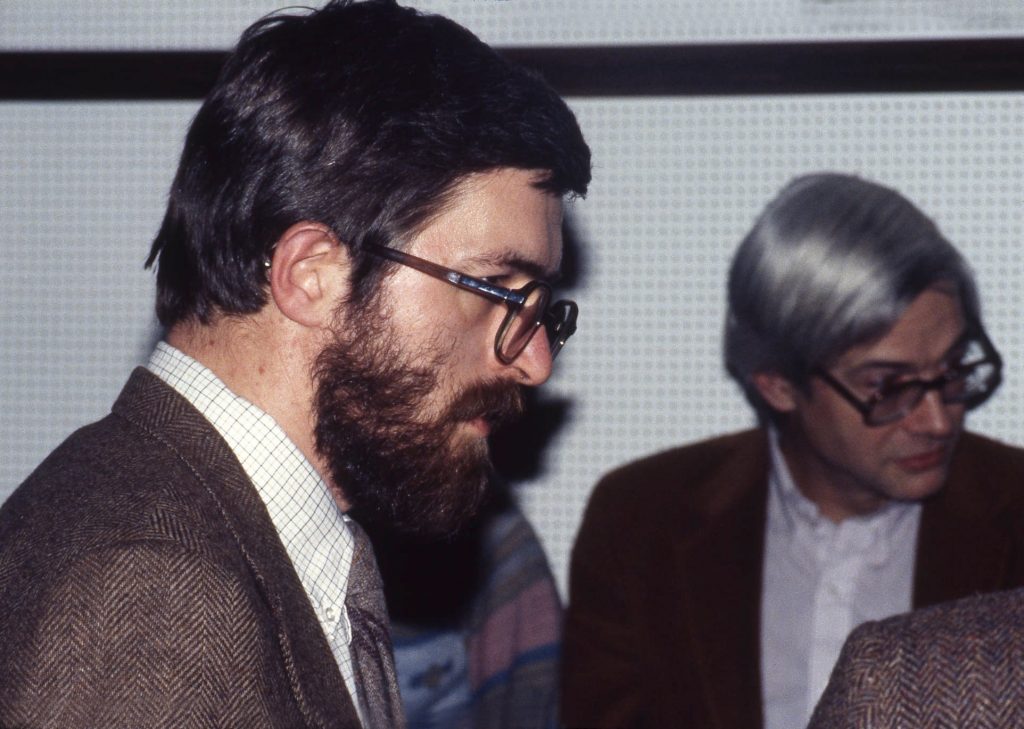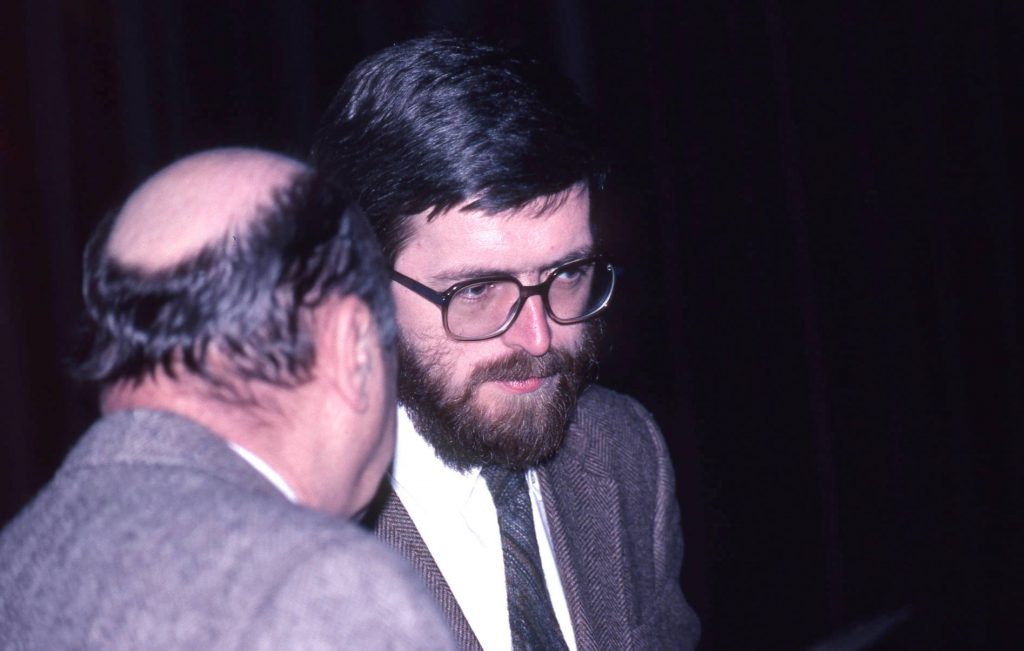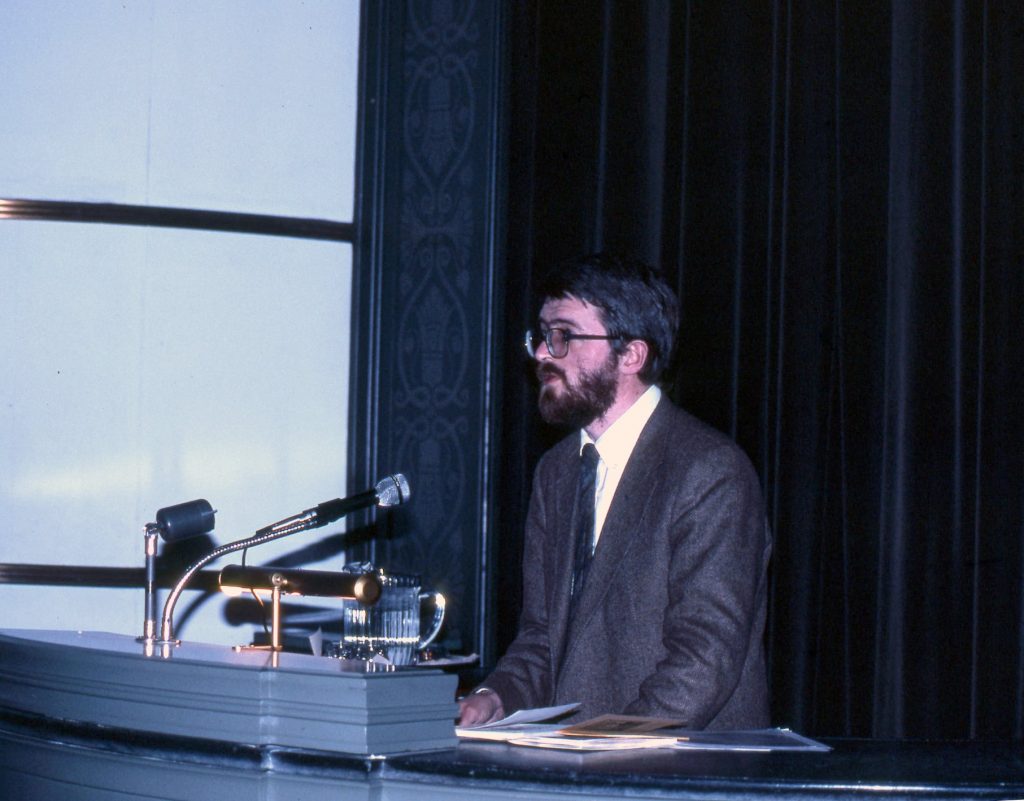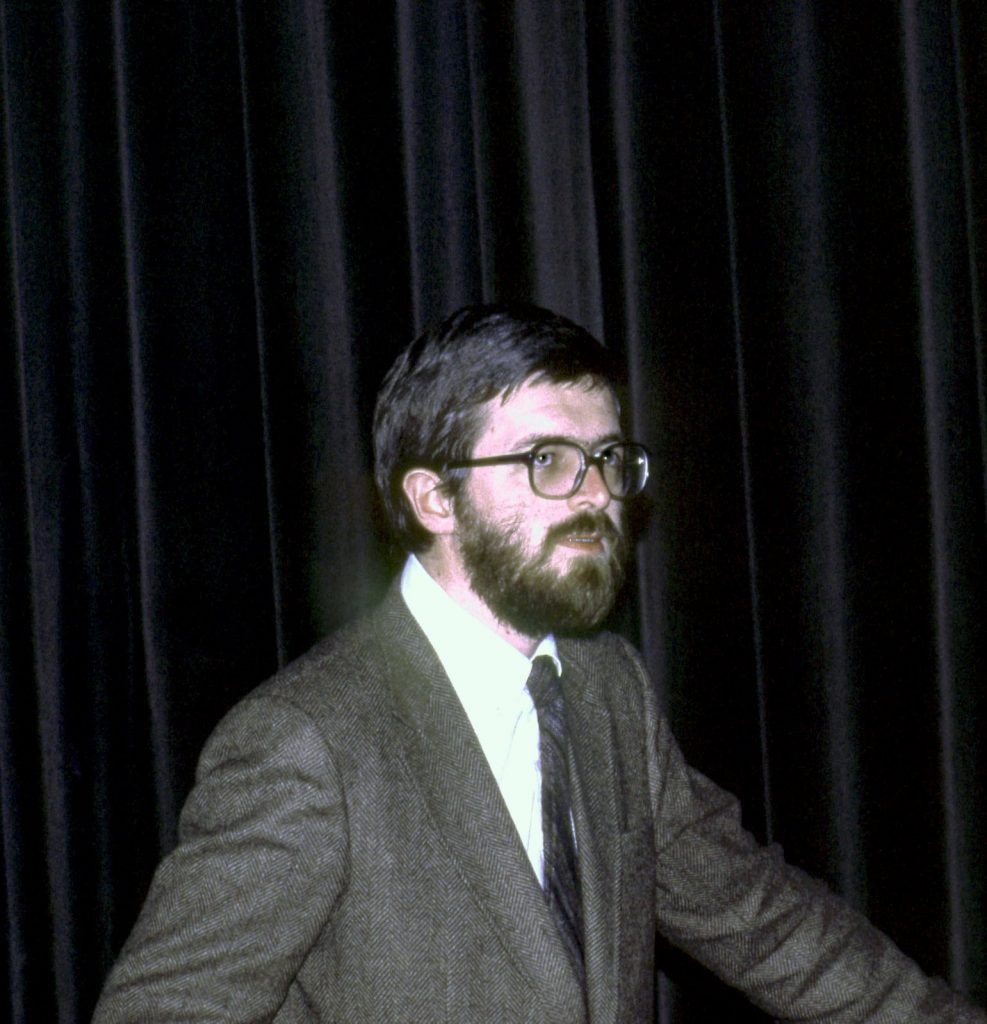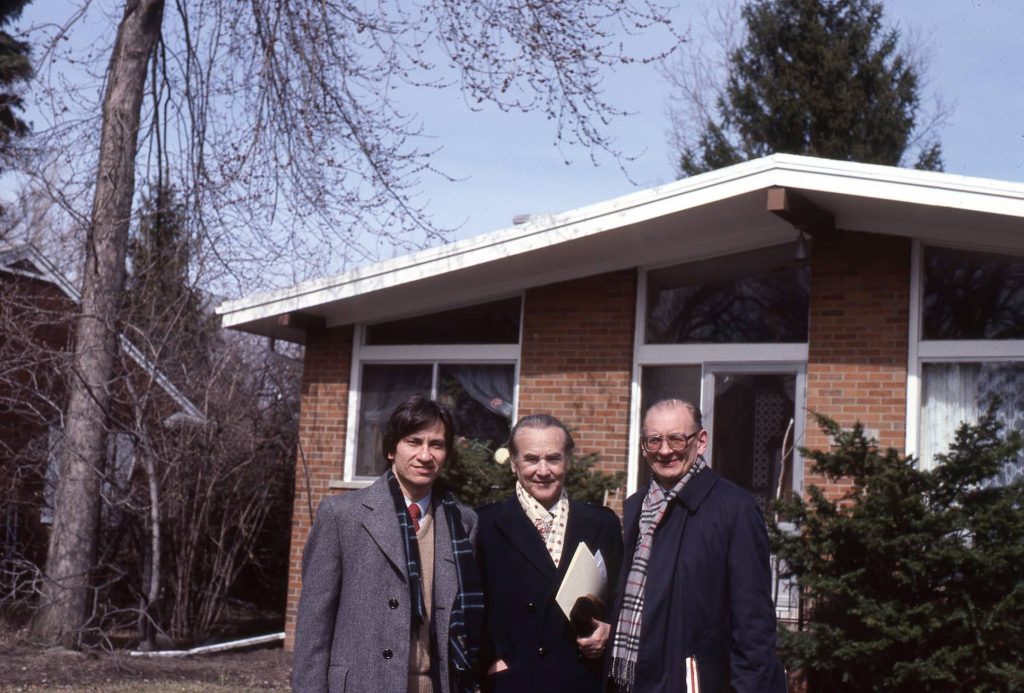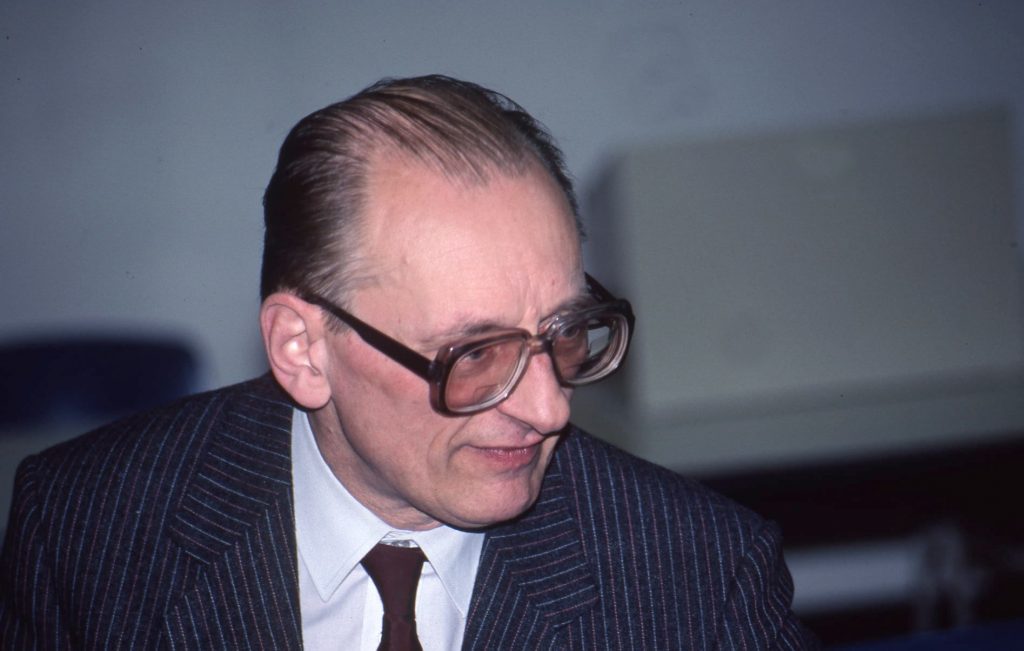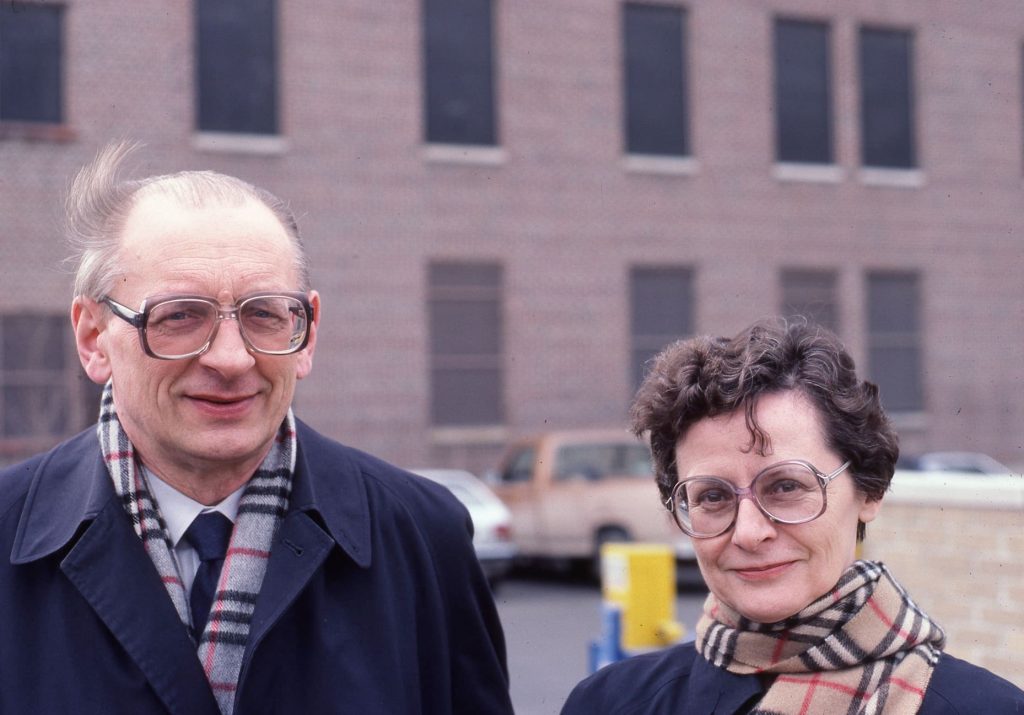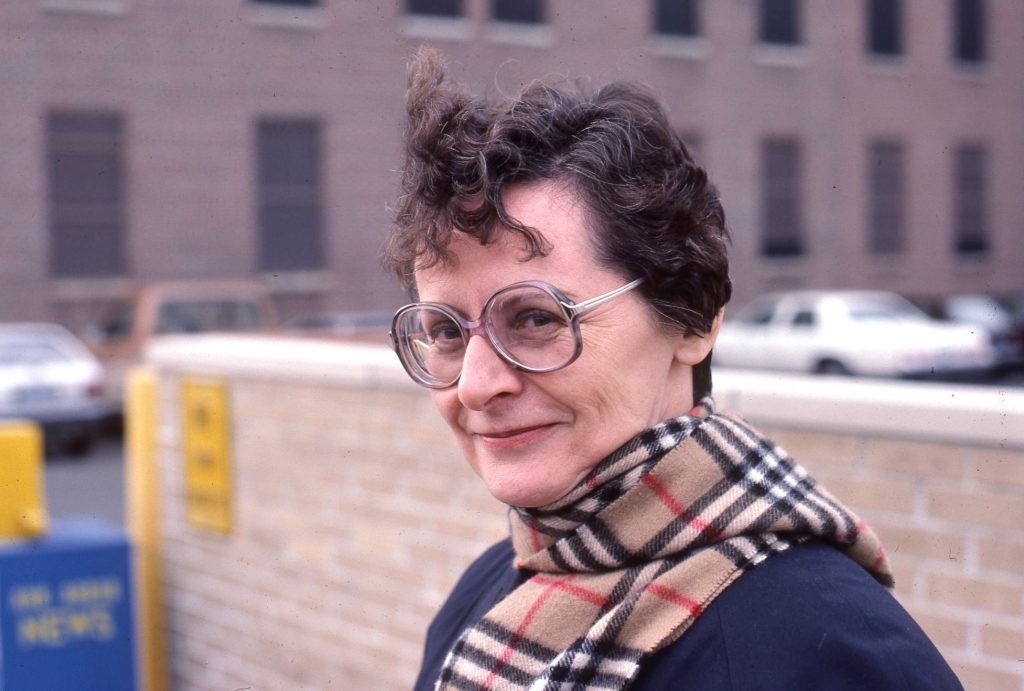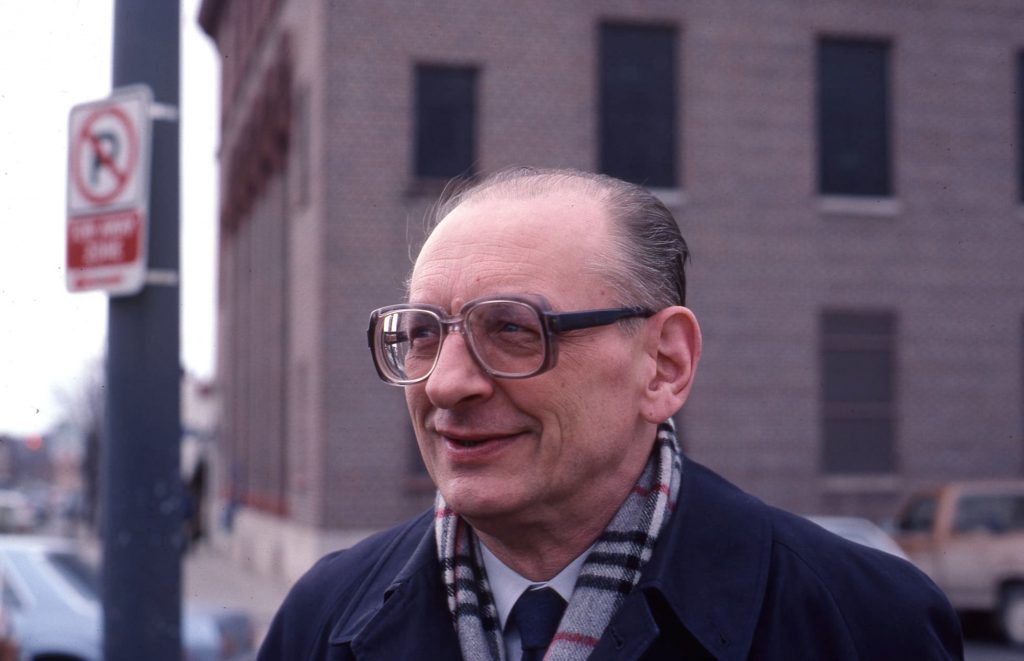Jacek Bierezin. urodził się w 1947 roku w Łodzi. Poeta, bokser, taternik i opozycjonista polityczny w jednej osobie przyjechał do Ann Arbor we wrześniu 1985 roku, gdzie się spotkał z lokalną Polonią.
U Davida McQuaida i Basi Delawskiej odbył się wieczorek poetycki, w którym miałem szczęście brać udział.
Bierezin był barwną postacią wśród polskich literatów. Wraz ze Stanisławem Barańczakiem, Adamem Zagajewskim, Julianem Kornhauserem i Ryszardem Krynickim stanowił część grupy poetów „Nowej Fali”, chociaż nigdy nie otrzymał zasłużonej uwagi.
Był działaczem opozycji politycznej, członkiem Komitetu Obrony Robotników i sygnatariuszem najważniejszych memoriałów protestujących politykę rządu komunistycznego w Polsce. Skłócił się ze środowiskami opozycyjnymi, co skłoniło go w rezultacie do założenia własnego pisma literackiego „Puls”. Bierezin stracił swoją pracę na Uniwersytecie Łódzkim z powodów politycznych i był aresztowany. a potem internowany w czasie stanu wojennego. Po zwolnieniu z obozu internowanego wyemigrował do Francji, gdzie współpracował z Kulturą paryską, która wydawała jego poezję. Po upadku komuny, Jacek Bierezin odwiedzał Polskę, ale nigdy nie wrócił na stałe. Został do końca postacią konfliktową. W maju 1993 roku zmarł tragicznie potrącony przez dwa samochody, kiedy z nieznanych powodów wyszedł na jezdnie przy moście Alma w Paryżu. Pochowany został na łódzkim cmentarzu Doły.
In September 1985, Polish poet, boxer, mountain climber, and political dissident, Jacek Bierezin visited Ann Arbor. While there, he met with local Polonia and gave a poetry reading at the apartment of David McQuaid and Basia Delawska. I was fortunate to be there. Bierezin was a colorful figure among Polish literati. He came from the industrial Polish city of Łódź and is considered along with Stanisław Barańczak, Adam Zagajewski, Julian Kornhauser, and Ryszard Krynicki, one of the “New Wave” Polish poets, but one who never received the deserved attention and acclaim of his peers. He was a political activist beginning in 1968 at the University of Łódź. Arrested multiple times, Bierezin, only had one volume of his poetry legally published in Poland. He was a member of the Workers Defense Committee and the signatory of several prominent protests against the Communist government in Poland. However, he was also a gadfly among the Polish opposition movement, eventually leading him to publish his own literary journal “Puls.” Bierezin was dismissed from his position at the University of Łódź and following his release from a Polish internment camp in 1982, Jacek Bierezin emigrated to France, where he worked closely with the émigré Polish journal “Kultura,” which also published his poetry. After the fall of Communism in Poland in 1989, he visited his homeland but did not remain. He was very much a person of turmoil and unrest. In May of 1993, Jacek Bierezin was killed when he was struck by two separate automobiles after he had stepped out onto the street on the Alma Bridge in Paris France. He was buried in his hometown of Łódź.
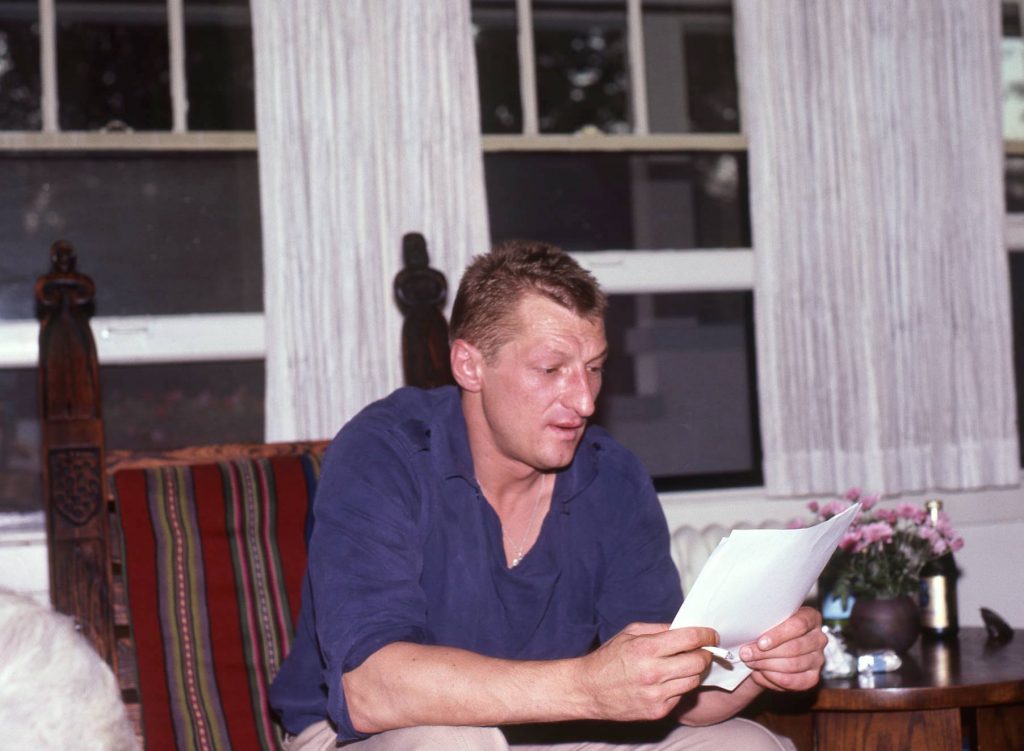
Wieczorek poetycki Jacka Bierezina w mieszkaniu Davida McQuaida i Basi Delawskiej przy ul. Madison w Ann Arbor we wrześniu 1985 r.
Jacek Bierezin reading his poetry at the Ann Arbor apartment of David McQuaid and Basia Delawska on Madison Street in September of 1985.
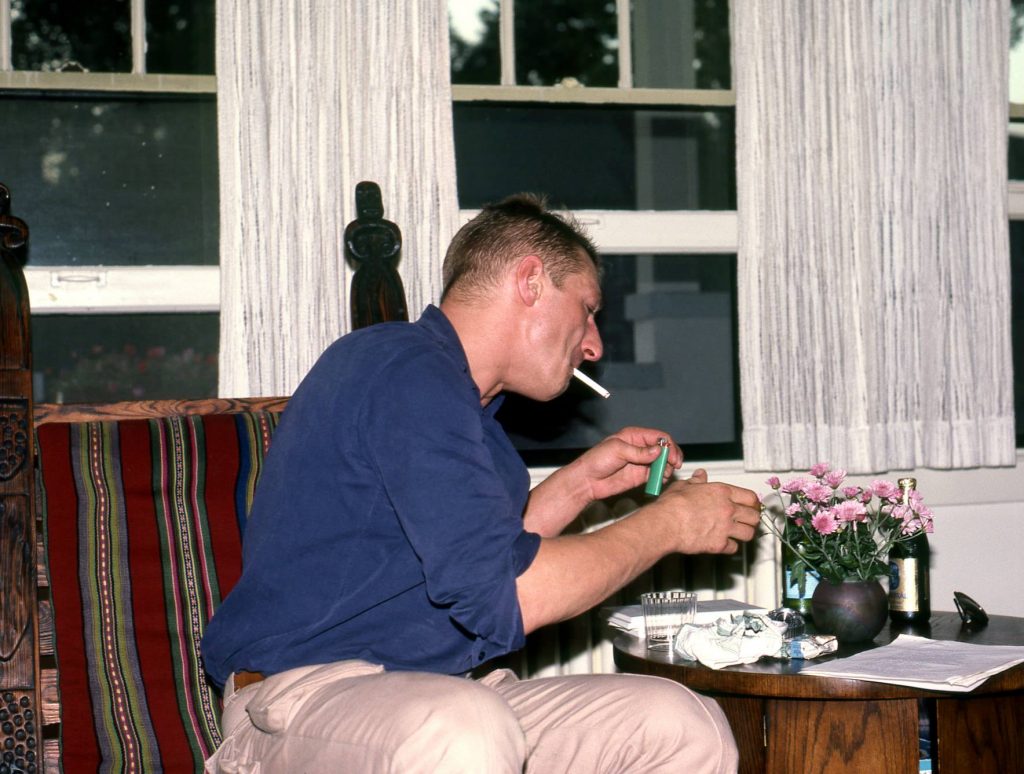
Jacek Bierezin w czasie przerwie swojego wieczorku poetyckiego w Ann Arbor we wrześniu 1985 r.
Jacek Bierezin taking a cigarette break during his poetry reading in Ann Arbor in September 1985.
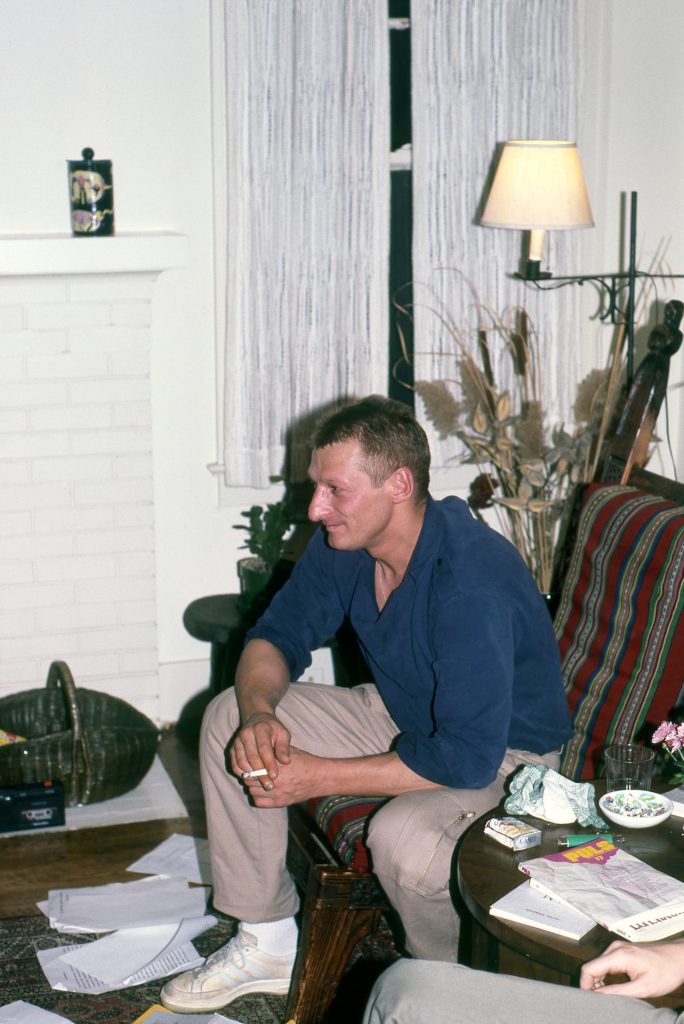
Jacek Bierezin w mieszkaniu Davida McQuaida i Basi Delawskiej przy ul. Madison w Ann Arbor we wrześniu 1985 .
Jacek Bierezin at the apartment of David McQuaid and Baisa Delwaska on Madison Street in Ann Arbor in September 1985.
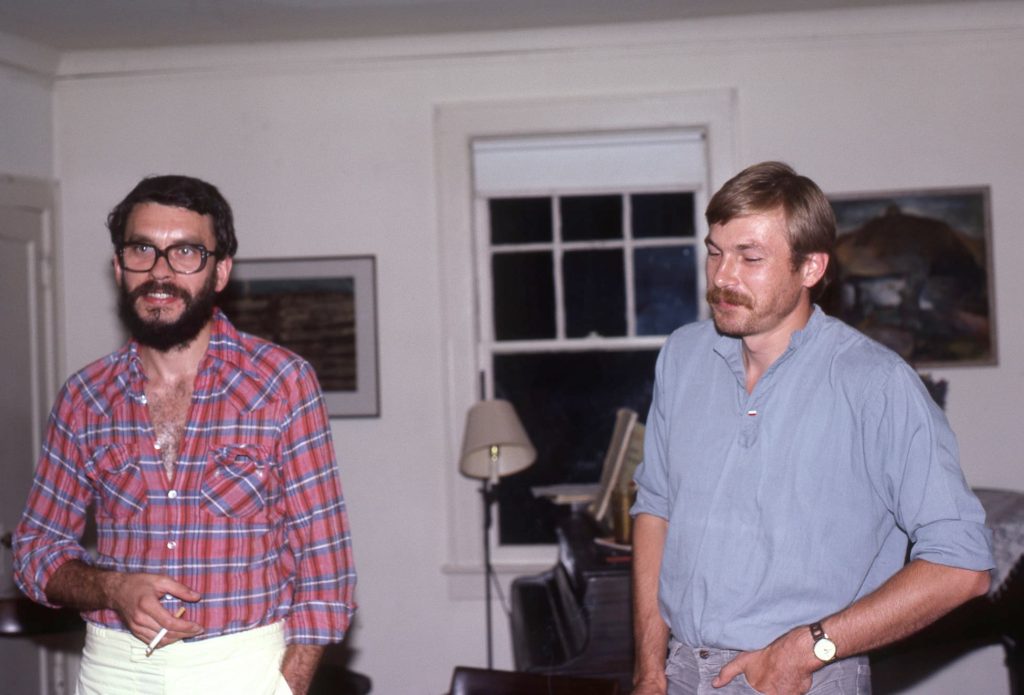
Leszek Strzelecki i Andrzej Dolata w mieszkaniu Davida McQuaida i Basi Delawskiej podczas wieczorku poetyckiego Jacka Bierezina.
Leszek Strzelecki and Andrzej Dolata attending Jacek Bierezin’s poetry reading held at the apartment of David McQuaid and Basia Delawska in Ann Arbor.
Leszek Strzelecki był prawnikiem i redaktorem Biuletynu Solidarności na Śląsku, internowany w stanie wojennym. Mieszka w Maryland i społecznie organizuje koncerty polskich muzyków jazzowych. Andrzej Dolata był internowany w czasie stanu wojennego i po przyjeździe do Ann Arbor ukończył studia stomatologii na Uniwersytecie Michigańskim po raz drugi. Miał już ukończoną stomatologię w Polsce. Działa społecznie w Ann Arbor i prowadzi prywatny gabinet stomatologiczny. Strzelecki was a Solidarity activist in Silesia and editor of the it’s Silesian newsletter. He was interned during martial law in Poland and left the country after his release. Leszek Strzelecki eventually moved to Washington, D.C. where he organizes and facilitates concerts of Polish jazz musicians. Andrzej Dolata eventually received his DDS from the University of Michigan in Ann Arbor and practices dentistry in the area. Dr. Dolata had already completed a dentistry degree in Poland where he had been practicing prior to internment. He is very active in local Ann Arbor Polish cultural initiatives.
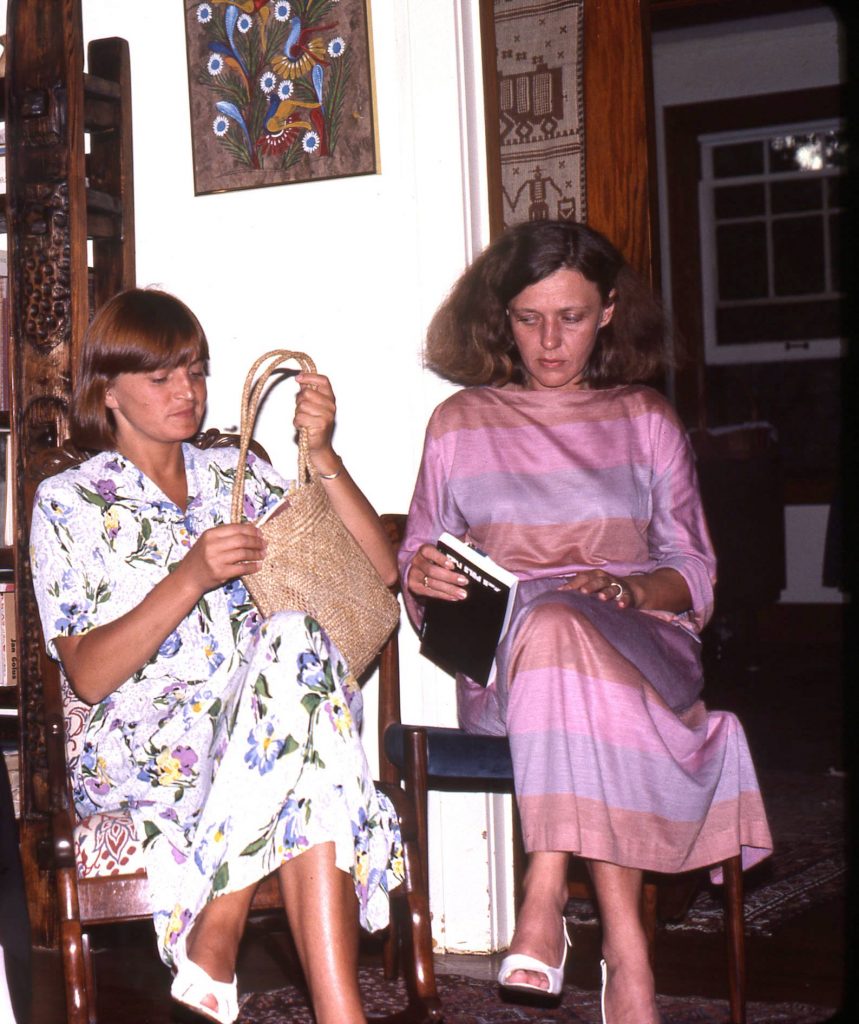
Ewa Juńczyk-Ziomecka siedząca po prawej, w czasie Jacka Bierezina wieczorku poetyckiego w Ann Arbor.
Ewa Juńczyk-Ziomecka, seated on the right, at the Jacek Bierezin poetry reading.
Ewa Juńczyk-Ziomecka jest prezesem zarządu Fundacji Edukacyjnej Jana Karskiego w Warszawie. Przez jakiś czas była redaktorem naczelnym Dziennika Polskiego w Detroit. W 2001 r została dyrektorem rozwoju Polinu, Muzeum Historii Polskich Żydów w Warszawie. W 2008 r, objęła funkcje sekretarza stanu w Kancelarii Prezydenta RP Lecha Kaczyńskiego. Nadzorowała Biuro Inicjatyw Społecznych oraz Polsko-Żydowskich Stosunków. Między 2010 i 2014 r była Konsulem Generalnym RP w Nowym Jorku.
Ewa Junczyk-Ziomecka is the president of the Jan Karski Educational Foundation’s sister organization in Warsaw. She served as Consul General of the Republic of Poland in New York from 2010 until 2014. She was previously Secretary of State at the Chancellery of the President of the Republic of Poland, where she was in charge of the Bureau of Social Initiatives and of Polish-Jewish relations. After coming to the United States in 1982, Ms. Junczyk-Ziomecka became editor-in-chief of the “Polish Daily News” (Dziennik Polski) in Detroit. In 2001, she was named director of development at the Museum of the History of Polish Jews in Warsaw.

